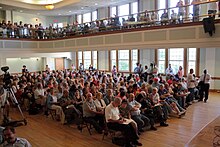
A legislature is a deliberative assembly with the legal authority to make laws for a political entity such as a country, nation or city on behalf of the people therein. They are often contrasted with the executive and judicial powers of government. Legislatures can exist at different levels of government–national, state/provincial/regional, local, even supranational. Countries differ as to what extent they grant deliberative assemblies at the subnational law-making power, as opposed to purely administrative responsibilities.

Maxine Moore Waters is an American politician serving as the U.S. representative for California's 43rd congressional district since 1991. The district, numbered as the 29th district from 1991 to 1993 and as the 35th district from 1993 to 2013, includes much of southern Los Angeles, as well as portions of Gardena, Inglewood and Torrance.

Patrick Joseph Tiberi is an American lobbyist and politician who served as the U.S. representative for Ohio's 12th congressional district from 2001 to 2018. His district included communities north and east of Columbus. He is a member of the Republican Party, and previously served in the Ohio House of Representatives from 1993 to 2000. He briefly served as Chair of the new Republican Main Street Congressional Caucus from September 7, 2017.

Town hall meetings, also referred to as town halls or town hall forums, are a way for local and national politicians to meet with their constituents either to hear from them on topics of interest or to discuss specific upcoming legislation or regulation. During periods of active political debate, town halls can be a locus for protest and more active debate. The term originates mainly from North America, and is unfamiliar in British English where politicians instead hold surgeries.

The proposed invasion of Afghanistan prompted protests with mass demonstrations in the days leading up to the official launch of the war on October 7, 2001. The continuation of the war in Afghanistan from 2001 to 2021 lead to further protest and opposition to hostilities.
The World Can't Wait (WCW) is a coalition group in the United States dedicated to mobilizing mass resistance to what it describes as crimes committed by the US government. Initially formed as an ad-hoc coalition to organize mass protests to force the George W. Bush Administration from office, WCW has also protested against the Iraq and Afghanistan wars, the continued operation of the Guantanamo Bay prison, the use of torture by the U.S. government under both the Bush and Obama administrations, and against anti-abortion groups and legislation.
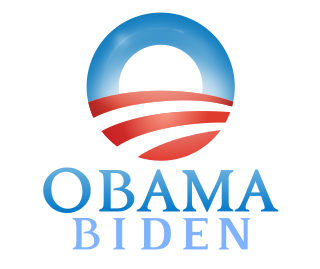
Barack Obama, then junior United States senator from Illinois, announced his candidacy for president of the United States on February 10, 2007, in Springfield, Illinois. After winning a majority of delegates in the Democratic primaries of 2008, on August 23, leading up to the convention, the campaign announced that Senator Joe Biden of Delaware would be the vice presidential nominee. At the 2008 Democratic National Convention on August 27, Barack Obama was formally selected as the Democratic Party nominee for president of the United States in 2008. He was the first African American in history to be nominated on a major party ticket. On November 4, 2008, Obama defeated the Republican nominee, Senator John McCain of Arizona, making him the president-elect and the first African American elected president.
The following is a timeline of the presidency of Barack Obama from his inauguration as the 44th president of the United States on January 20, 2009, to December 31, 2009. For his time as president-elect, see the presidential transition of Barack Obama; for a detailed account of his first months in office, see first 100 days of the Barack Obama presidency; for a complete itinerary of his travels, see list of presidential trips made by Barack Obama.

The Tea Party protests were a series of protests throughout the United States that began in early 2009. The protests were part of the larger political Tea Party movement. Most Tea Party activities have since been focused on opposing efforts of the Obama administration, and on recruiting, nominating, and supporting candidates for state and national elections. The name "Tea Party" is a reference to the Boston Tea Party, whose principal aim was to protest taxation without representation. Tea Party protests evoked images, slogans and themes from the American Revolution, such as tri-corner hats and yellow Gadsden "Don't Tread on Me" flags. The letters T-E-A have been used by some protesters to form the backronym "Taxed Enough Already".
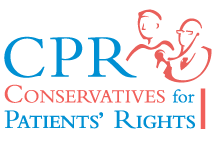
Conservatives for Patients' Rights (CPR) is a health care advocacy group founded by Rick Scott in February 2009 and most active in the 2009-2010 US electoral cycle.

Andrew M. Slavitt is an American businessman and healthcare advisor who served as the acting administrator of the Centers for Medicare and Medicaid Services from March 2015 to January 2017 and as a temporary Senior Advisor to the COVID-19 Response Coordinator in the Biden administration. A leader of the team that helped to repair the healthcare.gov website after its initial rollout, he was nominated by Barack Obama to run CMS in July 2015. In January 2021, Slavitt accepted a temporary role as Senior Pandemic Advisor to President Joe Biden’s COVID-19 pandemic response team. He stepped down from that role in June 2021.
The proposed America's Affordable Health Choices Act of 2009 was an unsuccessful bill introduced in the U.S. House of Representatives on July 14, 2009. The bill was introduced during the first session of the 111th Congress as part of an effort of the Democratic Party leadership to enact health care reform. The bill was not approved by the House, but was superseded by a similar bill, the proposed Affordable Health Care for America Act, which was passed by the House in November 2009, by a margin of 220-215 votes but later abandoned.
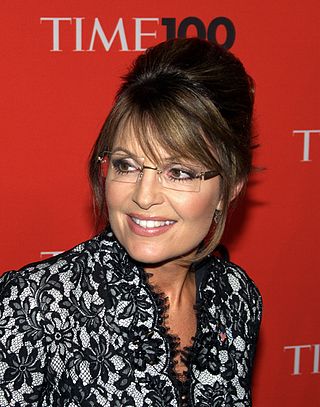
"Death panel" is a political term that originated during the 2009 debate about federal health care legislation to cover the uninsured in the United States. Sarah Palin, former governor of Alaska and 2008 Republican vice presidential candidate, coined the term when she charged that proposed legislation would create a "death panel" of bureaucrats who would carry out triage, i.e. decide whether Americans—such as her elderly parents, or children with Down syndrome—were "worthy of medical care". Palin's claim has been referred to as the "death panel myth", as nothing in any proposed legislation would have led to individuals being judged to see if they were worthy of health care.

The Taxpayer March on Washington was a Tea Party protest march from Freedom Plaza to the United States Capitol held on September 12, 2009, in Washington, D.C. The event coincided with similar protests organized in various cities across the nation. The protesters rallied against what they consider big government, the dismantling of free market capitalism, abortion, and President Barack Obama's proposals on health care reform, taxation, and federal spending, among other issues.
The White House Rural Council was an entity within President Obama's Domestic Policy Council of the Executive Office of the President of the United States. The council was formed on June 14, 2012, and was intended to assist low-income residents residing in rural communities as an effort to build on the administrations rural economic strategy by promoting economic prosperity and quality of life. The Council was overseen by the Secretary of Agriculture and the members include the leaders of 25 executive agencies. President Trump dissolved the White House Rural Council on April 25, 2017 with Executive Order 13790.
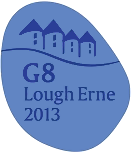
The 39th G8 summit was held on 17–18 June 2013, at the Lough Erne Resort, a five-star hotel and golf resort on the shore of Lough Erne in County Fermanagh, Northern Ireland. It was the sixth G8 summit to be held in the United Kingdom and the first to be held in Northern Ireland. The earlier G8 summits hosted by the United Kingdom were held in London, Birmingham (1998), and Gleneagles (2005).
Organizing for Action (OFA) was a nonprofit organization and community organizing project that advocated for the agenda of former U.S. President Barack Obama. The organization was officially non-partisan, but its agenda and policies were strongly allied with the Democratic Party. It was the successor of Obama's 2012 re-election campaign and of Organizing for America, which itself succeeded Obama's 2008 campaign.

Protests against Donald Trump have occurred in the United States and internationally since his entry into the 2016 presidential campaign. Protests have expressed opposition to Trump's campaign rhetoric, his electoral win, his first inauguration, his alleged history of sexual misconduct and various presidential actions, most notably his travel ban in 2017 and aggressive family separation policy in 2018. Some protests have taken the form of walk-outs, business closures, and petitions as well as rallies, demonstrations, and marches. While most protests have been peaceful, actionable conduct such as vandalism and assaults on Trump supporters has occurred. Some protesters have been criminally charged with rioting. The largest organized protest against Trump was the day after his first inauguration; millions protested on January 21, 2017, during the Women's March, with each individual city's protest taken into consideration, makes it the largest single-day protest in the history of the United States.

The Women's March was a worldwide protest on January 21, 2017, the day after the first inauguration of Donald Trump as the president of the United States. It was prompted by Trump's policy positions and rhetoric, which were and are seen as misogynistic and representative as a threat to the rights of women. It was at the time the largest single-day protest in U.S. history, being surpassed 3 years later by the George Floyd protests. The goal of the annual marches is to advocate legislation and policies regarding human rights and other issues, including women's rights, immigration reform, healthcare reform, disability justice, reproductive rights, the environment, LGBTQ rights, racial equality, freedom of religion, workers' rights and tolerance. According to organizers, the goal was to "send a bold message to our new administration on their first day in office, and to the world that women's rights are human rights".

Indivisible is a progressive movement and organization in the United States initiated in 2016 as a reaction to the election of Donald Trump as President of the United States. The movement's organizational leadership includes the Indivisible Project, Indivisible Civics, and Indivisible Action. The movement began with the online publication of a handbook written by Congressional staffers with suggestions for peacefully but effectively resisting the move to the right in the executive branch of the United States government under the Trump administration that was widely anticipated and feared by progressives. According to Peter Dreier, the goal of Indivisible is to "save American democracy" and "resume the project of creating a humane America that is more like social democracy than corporate plutocracy."
